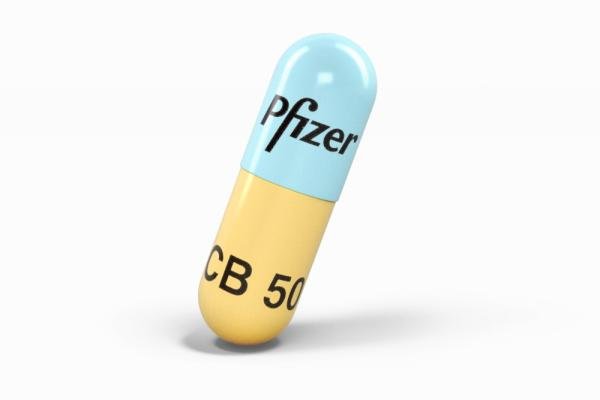Ritlecitinib Disease Interactions
There are 3 disease interactions with ritlecitinib.
JAK inhibitors (applies to ritlecitinib) cardiovascular risk
Major Potential Hazard, Moderate plausibility. Applicable conditions: Cardiovascular Disease, Smoking
In a major safety study of a Janus kinase (JAK) inhibitor, tofacitinib, in rheumatoid arthritis patients 50 years and older with at least 1 cardiovascular risk factor, higher rates of all-cause mortality (including sudden cardiovascular death) and major adverse cardiovascular events (MACE) (defined as cardiovascular death, myocardial infarction, and stroke) were observed with the JAK inhibitor when compared with tumor necrosis factor (TNF) blockers. Patients who were current or past smokers had an additional increased risk. Based on a shared mechanism of action, this risk should be considered for other JAK inhibitors, including baricitinib, upadacitinib, ruxolitinib, fedratinib, ritlecitinib, deuruxolitinib, and pacritinib. Consider the benefits and risks for each individual patient prior and during treatment with JAK inhibitors, especially in patients with other cardiovascular risk factors, history of cardiovascular events, and patients who are current or past smokers. Patients should be informed about the symptoms of serious cardiovascular events and what to do if they occur.
References (10)
- (2011) "Product Information. Jakafi (ruxolitinib)." Incyte Corporation
- (2019) "Product Information. Rinvoq (upadacitinib)." AbbVie US LLC
- (2019) "Product Information. Inrebic (fedratinib)." Celgene Corporation
- (2022) "Product Information. Vonjo (pacritinib)." CTI BioPharma Corp.
- (2021) "Product Information. Xeljanz (tofacitinib)." Pfizer U.S. Pharmaceuticals Group, SUPPL-28
- (2022) "Product Information. Inrebic (fedratinib)." Bristol-Myers Squibb
- (2022) "Product Information. Olumiant (baricitinib)." Lilly, Eli and Company, SUPPL-7
- (2023) "Product Information. Litfulo (ritlecitinib)." Pfizer U.S. Pharmaceuticals Group
- (2023) "Product Information. Ojjaara (momelotinib)." GlaxoSmithKline
- (2024) "Product Information. Leqselvi (deuruxolitinib)." Sun Pharmaceutical Industries
Ritlecitinib (applies to ritlecitinib) infections
Major Potential Hazard, Moderate plausibility. Applicable conditions: Infection - Bacterial/Fungal/Protozoal/Viral, History - Tuberculosis, Immunodeficiency
Avoid the use of ritlecitinib in patients with an active, serious infection. Consider the risks and benefits of treatment in patients with chronic or recurrent infection, exposed to tuberculosis (TB), with a history of serious infection or an opportunistic infection, who have resided or traveled in areas of endemic TB or mycoses, or with underlying conditions that may predispose them to infection. Patients should be screened for TB before treatment initiation. This drug should not be given to patients with active TB or untreated latent TB; anti-TB therapy should be started prior to initiating treatment. Screening for viral hepatitis should be performed in accordance with clinical guidelines before starting therapy. Treatment interruption should be considered in patients with viral reactivation (e.g., herpes zoster).
References (1)
- (2023) "Product Information. Litfulo (ritlecitinib)." Pfizer U.S. Pharmaceuticals Group
Ritlecitinib (applies to ritlecitinib) hepatic dysfunction
Moderate Potential Hazard, Moderate plausibility. Applicable conditions: Liver Disease
Ritlecitinib is not recommended in patients with severe (Child Pugh C) hepatic impairment.
References (1)
- (2023) "Product Information. Litfulo (ritlecitinib)." Pfizer U.S. Pharmaceuticals Group
Switch to consumer interaction data
Ritlecitinib drug interactions
There are 809 drug interactions with ritlecitinib.
Ritlecitinib alcohol/food interactions
There is 1 alcohol/food interaction with ritlecitinib.
More about ritlecitinib
- ritlecitinib consumer information
- Check interactions
- Compare alternatives
- Reviews (1)
- Side effects
- Dosage information
- During pregnancy
- Drug class: selective immunosuppressants
- Breastfeeding
- En español
Related treatment guides
Drug Interaction Classification
| Highly clinically significant. Avoid combinations; the risk of the interaction outweighs the benefit. | |
| Moderately clinically significant. Usually avoid combinations; use it only under special circumstances. | |
| Minimally clinically significant. Minimize risk; assess risk and consider an alternative drug, take steps to circumvent the interaction risk and/or institute a monitoring plan. | |
| No interaction information available. |
See also:
Further information
Always consult your healthcare provider to ensure the information displayed on this page applies to your personal circumstances.


